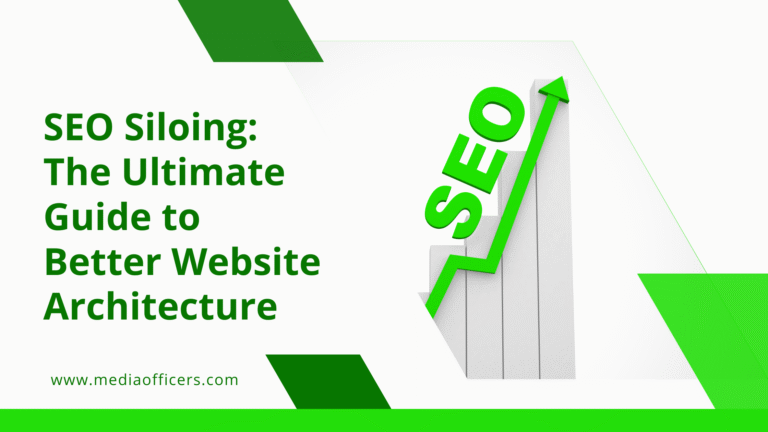|
Getting your Trinity Audio player ready... |
Keywords are fundamental to successful search engine optimization (SEO) strategies. They consist of words and phrases users input into search engines when seeking information, products, or services. Understanding keywords, including tips for improving SEO, is essential for optimizing websites to achieve higher rankings in search engine results pages (SERPs).
Effective keyword research involves identifying relevant and high-performing terms for a business. This process includes analyzing search volume, competition levels, and relevance to the target audience. Once target keywords are determined, they can be strategically incorporated into website content, meta tags, and descriptions to enhance visibility and relevance to search engines.
In addition to primary keywords, long-tail keywords play a crucial role in SEO. These are longer, more specific phrases that target niche audiences. Utilizing both primary and long-tail keywords, along with tips for improving SEO, allows for comprehensive website optimization, potentially leading to improved search engine rankings and increased organic traffic.
Keyword selection and implementation are ongoing processes in SEO. As search trends and user behavior evolve, it’s important to regularly review and update keyword strategies to maintain and improve search engine performance.
Key Takeaways
- Keywords are crucial for SEO and should be strategically placed throughout website content.
- High-quality, relevant content is essential for engaging and retaining website visitors.
- Meta tags and descriptions should accurately reflect the content of each webpage to improve search engine visibility.
- Improving website speed and ensuring mobile-friendliness are important for user experience and SEO ranking.
- Building high-quality backlinks from reputable sources can significantly improve website authority and search engine ranking.
- Utilizing social media and online directories can help increase website visibility and drive traffic.
- Regularly monitoring and analyzing SEO performance is necessary to make informed decisions and adjustments for ongoing improvement.
Creating High-Quality, Relevant Content
Creating Engaging Content
Creating high-quality content involves producing original, well-researched, and engaging material that addresses the needs and interests of your target audience. When creating content for your website, it’s important to focus on providing solutions to common problems, answering frequently asked questions, and offering valuable insights related to your industry.
Diversifying Content Formats
In addition to creating written content, it’s also important to incorporate other forms of media such as images, videos, infographics, and podcasts to enhance the user experience and make your content more engaging. By diversifying your content formats, you can appeal to a wider audience and increase the likelihood of attracting organic traffic from various sources.
Establishing Authority and Improving Rankings
By consistently producing high-quality content, you can establish your website as a reliable source of information in your niche, which can lead to increased organic traffic and improved search engine rankings.
Utilizing Meta Tags and Descriptions

Meta tags and descriptions play a crucial role in optimizing your website for search engines. These elements provide search engines with valuable information about the content of your web pages, which helps them understand the relevance of your site to specific search queries. When optimizing meta tags, it’s important to include relevant keywords that accurately reflect the content of each page on your website.
This helps search engines understand the context of your pages and improves their visibility in SERPs. Additionally, writing compelling meta descriptions can encourage users to click through to your website from search results by providing a concise summary of what they can expect to find on your page. In addition to optimizing meta tags and descriptions for individual pages, it’s also important to ensure that they are unique and descriptive.
This helps search engines differentiate between different pages on your website and improves the overall user experience by providing accurate and relevant information in search results. Meta tags and descriptions play a crucial role in optimizing your website for search engines. These elements provide search engines with valuable information about the content of your web pages, which helps them understand the relevance of your site to specific search queries.
When optimizing meta tags, it’s important to include relevant keywords that accurately reflect the content of each page on your website. This helps search engines understand the context of your pages and improves their visibility in SERPs. Additionally, writing compelling meta descriptions can encourage users to click through to your website from search results by providing a concise summary of what they can expect to find on your page.
In addition to optimizing meta tags and descriptions for individual pages, it’s also important to ensure that they are unique and descriptive. This helps search engines differentiate between different pages on your website and improves the overall user experience by providing accurate and relevant information in search results.
Improving Website Speed and Mobile-Friendliness
| Metrics | Current | Target |
|---|---|---|
| Page Load Time (seconds) | 5.2 | 2.0 |
| Mobile-Friendly Score | 75% | 90% |
| Mobile Page Speed (seconds) | 7.8 | 3.0 |
| Desktop Page Speed (seconds) | 4.5 | 1.5 |
Website speed and mobile-friendliness are critical factors that can impact your website’s SEO performance. Search engines prioritize websites that load quickly and provide a seamless user experience across all devices. Therefore, it’s important to optimize your website for speed and ensure that it is mobile-friendly to improve its search engine rankings.
To improve website speed, you can implement various strategies such as optimizing images, minifying CSS and JavaScript files, leveraging browser caching, and using a content delivery network (CDN) to distribute your website’s content across multiple servers. These techniques can help reduce page load times and improve the overall performance of your website. In addition to improving website speed, it’s also important to ensure that your website is mobile-friendly.
This involves using responsive design principles to ensure that your website adapts seamlessly to different screen sizes and devices. By providing a positive mobile user experience, you can improve your website’s visibility in mobile search results and attract more organic traffic from mobile users. Website speed and mobile-friendliness are critical factors that can impact your website’s SEO performance.
Search engines prioritize websites that load quickly and provide a seamless user experience across all devices. Therefore, it’s important to optimize your website for speed and ensure that it is mobile-friendly to improve its search engine rankings. To improve website speed, you can implement various strategies such as optimizing images, minifying CSS and JavaScript files, leveraging browser caching, and using a content delivery network (CDN) to distribute your website’s content across multiple servers.
These techniques can help reduce page load times and improve the overall performance of your website. In addition to improving website speed, it’s also important to ensure that your website is mobile-friendly. This involves using responsive design principles to ensure that your website adapts seamlessly to different screen sizes and devices.
By providing a positive mobile user experience, you can improve your website’s visibility in mobile search results and attract more organic traffic from mobile users.
Building High-Quality Backlinks
Backlinks are an essential component of any successful SEO strategy. They are links from other websites that point back to your site and are considered a vote of confidence in the eyes of search engines. Building high-quality backlinks from authoritative websites can significantly improve your website’s authority and credibility in the eyes of search engines.
To build high-quality backlinks, it’s important to focus on creating valuable and shareable content that naturally attracts links from other websites. This can include producing informative blog posts, conducting original research, creating infographics or videos, or offering free tools or resources that are relevant to your industry. By consistently producing valuable content, you can increase the likelihood of earning backlinks from reputable websites.
In addition to creating valuable content, you can also proactively reach out to other websites in your industry to request backlinks or collaborate on content initiatives. This can help you build relationships with other webmasters and increase the chances of earning high-quality backlinks that positively impact your website’s SEO performance. Backlinks are an essential component of any successful SEO strategy.
They are links from other websites that point back to your site and are considered a vote of confidence in the eyes of search engines. Building high-quality backlinks from authoritative websites can significantly improve your website’s authority and credibility in the eyes of search engines. To build high-quality backlinks, it’s important to focus on creating valuable and shareable content that naturally attracts links from other websites.
This can include producing informative blog posts, conducting original research, creating infographics or videos, or offering free tools or resources that are relevant to your industry. By consistently producing valuable content, you can increase the likelihood of earning backlinks from reputable websites. In addition to creating valuable content, you can also proactively reach out to other websites in your industry to request backlinks or collaborate on content initiatives.
This can help you build relationships with other webmasters and increase the chances of earning high-quality backlinks that positively impact your website’s SEO performance.
Utilizing Social Media and Online Directories

Boosting Website Visibility through Social Media
By leveraging social media platforms such as Facebook, Twitter, LinkedIn, Instagram, and Pinterest, you can promote your content, engage with your audience, and attract more visitors to your website. To maximize the impact of social media on your SEO, it’s crucial to share valuable content regularly, engage with your followers, participate in relevant discussions or groups, and utilize social media advertising to reach a wider audience.
Establishing a Strong Social Media Presence
By building a strong social media presence, you can increase brand awareness, drive referral traffic to your website, and improve its overall authority in the eyes of search engines. This, in turn, can lead to higher search engine rankings and more organic traffic.
Online Directories for Local Search Visibility
In addition to social media platforms, online directories such as Google My Business, Yelp, Yellow Pages, and industry-specific directories can also help improve your website’s visibility in local search results. To reap the benefits, ensure that your business information is accurate and consistent across these directories. This will increase the likelihood of appearing in local search results when potential customers are looking for products or services related to your business.
Monitoring and Analyzing SEO Performance
Monitoring and analyzing SEO performance is essential for understanding the effectiveness of your SEO efforts and identifying areas for improvement. By regularly tracking key metrics such as organic traffic, keyword rankings, backlink profile, bounce rate, conversion rate, and user engagement metrics, you can gain valuable insights into how well your website is performing in search engine results. In addition to monitoring key metrics, it’s also important to conduct regular SEO audits to identify technical issues that may be impacting your website’s performance.
This involves reviewing factors such as site speed, mobile-friendliness, crawl errors, broken links, duplicate content issues, and overall site structure to ensure that your website is optimized for better search engine rankings. By analyzing SEO performance data regularly and making informed decisions based on these insights, you can continuously optimize your website for improved visibility in search engine results pages (SERPs) and attract more organic traffic over time. Monitoring and analyzing SEO performance is essential for understanding the effectiveness of your SEO efforts and identifying areas for improvement.
By regularly tracking key metrics such as organic traffic, keyword rankings, backlink profile, bounce rate, conversion rate, and user engagement metrics, you can gain valuable insights into how well your website is performing in search engine results. In addition to monitoring key metrics, it’s also important to conduct regular SEO audits to identify technical issues that may be impacting your website’s performance.
By analyzing SEO performance data regularly and making informed decisions based on these insights, you can continuously optimize your website for improved visibility in search engine results pages (SERPs) and attract more organic traffic over time.
If you’re looking to boost your website’s visibility in India, you may want to check out this article on unlocking the power of SEO. It provides detailed insights on how to improve your website’s search engine optimization to reach a wider audience in India.
FAQs
What is a detailed SEO extension?
A detailed SEO extension is a tool or software that provides in-depth analysis and insights into the search engine optimization (SEO) performance of a website. It typically offers features such as keyword analysis, backlink monitoring, on-page optimization suggestions, and competitor analysis.
How does a detailed SEO extension work?
A detailed SEO extension works by gathering data from various sources such as search engines, website analytics, and other SEO tools. It then processes this data to provide comprehensive reports and recommendations for improving the SEO performance of a website.
What are the key features of a detailed SEO extension?
Key features of a detailed SEO extension may include keyword research and analysis, backlink monitoring, on-page optimization suggestions, competitor analysis, website audit, and performance tracking. Some extensions may also offer additional features such as social media analysis and content optimization.
Who can benefit from using a detailed SEO extension?
Website owners, digital marketers, SEO professionals, and anyone involved in online marketing can benefit from using a detailed SEO extension. It provides valuable insights and data to improve the visibility and ranking of a website in search engine results.
Are there different types of detailed SEO extensions available?
Yes, there are various types of detailed SEO extensions available, each with its own set of features and capabilities. Some extensions are designed for specific platforms or content management systems, while others offer a more comprehensive suite of SEO tools.
How can a detailed SEO extension help improve website performance?
A detailed SEO extension can help improve website performance by identifying areas for improvement in keyword targeting, content optimization, backlink building, and overall SEO strategy. It provides actionable insights to enhance the website’s visibility and ranking in search engine results.






